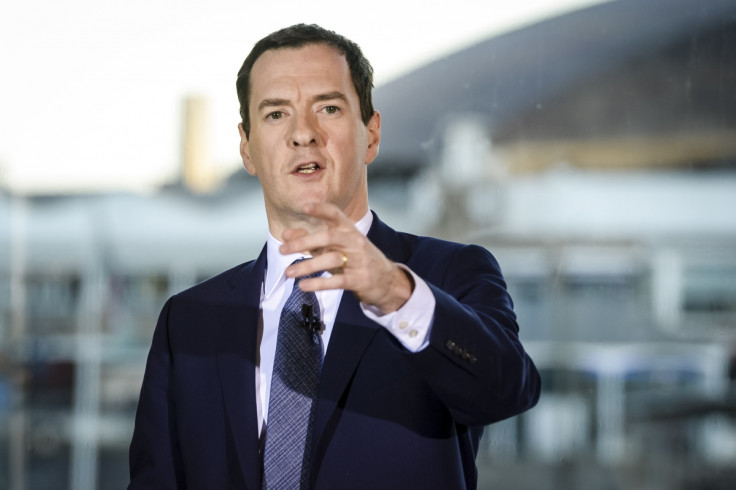Budget 2016: What will George Osborne do to UK pensions on Wednesday?

George Osborne was going to use his 2016 Budget to radically reform the pensions system in Britain. But the chancellor realised upsetting a large section of voters before the EU referendum might be a bad idea, so ditched the reforms. He probably also had an eye on the post-David Cameron future of the Conservative party, which he aspires to lead. Robbing grannies, metaphorically speaking, is not a good look for a Tory who will soon be fighting off close rivals for leadership of a party disproportionately popular among pensioners.
Through briefings and whispers, Osborne's office made it known they were considering a package of progressive measures. One was cutting tax relief for higher-earning pensions savers, perhaps by introducing a flat-rate of relief for everyone. Savers currently get tax relief at the income tax rates, meaning higher earners are much better off than lower one. Another touted reform was taxing payments into savings accounts rather than withdrawals during retirement, reversing what happens currently. These savings could then be topped up by government contributions in a fundamental reform of the pensions system.
This may, according to a Treasury consultation document, "allow individuals to better understand the benefits of contributing to their pension as the government's contribution might be more transparent, and they would no longer need to consider the future tax implications of their pension choices or work out how much their pension pot is worth given their expected tax rate in retirement."
Some Tory MPs kicked off. "The one thing we need for pension planning is stability," said Sir Alan Duncan, a Conservative MP and former government minister, to the Financial Times. "Raiding pensions like this destroy people's planning and I think it will prove very explosive." Another anonymous MP said there would be "a riot". So Osborne dropped any plans for fundamental reform of the pensions system in Britain, ostensibly because he did not want to cause an administrative headache for businesses with such wholesale change. Does that mean there will be no pension changes in the 2016 Budget? No, and it doesn't even mean the radical reforms are completely off the table.
"There is still a lot of speculation, so we shouldn't be celebrating stability just yet," wrote Steven Cameron, head of pensions at the insurer Aegon, in CityAM. "And the Treasury comment than 'now' is not the right time for radical change, does beg the question of how soon after the EU referendum might the right time arrive. A commitment to no further changes within this government's term would be very welcome, but this may not be the last Budget where we've been holding our breath in anticipation of major changes to pensions tax relief. Ultimately, it seems that broader political considerations are what tipped the scales for this year's Budget."
In the short-term, what Osborne may choose to do is cut further the allowances offered to pension savers. These allowances are caps on the amount against which savers can claim pension tax reliefs. The annual allowance is a cap of £40,000. Any unused amount of the cap from the three previous years can be added to your allowance in the current year. But this allowance is cut for the highest earners. So for every £1 someone earns above £150,000 a year, the annual pensions allowance is reduced by £2. The lifetime allowance is £1.25m but will be reduced to £1m from April 2016. Will Osborne go further on either of these allowances to help him close the budget deficit? Some are suggesting the annual allowance could be cut to as low as £10,000, though if any change is made, £25,000 is a more likely figure, and would be targeted at the highest earners.
Another potential target for Osborne is salary sacrifice. This is where an employee sacrifices a part of their pre-tax salary for a benefit, such as a contribution to their pension. While this is good for an employee, who not only increases their pension pot tax-free but also reduces their income tax and national insurance bills, the Treasury loses potential revenue. "The big question is, will any change in the spring Budget be introduced immediately?" Martin Tilley, a director at pensions firm Dentons, told The Telegraph. "This is a real possibility which it would be wrong to rule out and opinions vary as whether this would apply. Of the changes suggested as possible, some, including a flat rate of relief, could require some major changes in systems, payroll and tax reclamation processes. It would be unreasonable to expect employers and pension schemes to react instantaneously and even an implementation date of 5 April would stretch capacity."
While Osborne has backed off of substantial reform, he still has to close the budget deficit and pensions are a potentially lucrative source of income for the Treasury. He can only squeeze public spending such as welfare so far, and raising corporate or income tax after making such a big deal of cutting both would be a tricky political move. Tinkering about with pensions might be the least worst option for the chancellor even if he can't overhaul the system as he had hoped.
© Copyright IBTimes 2025. All rights reserved.






















